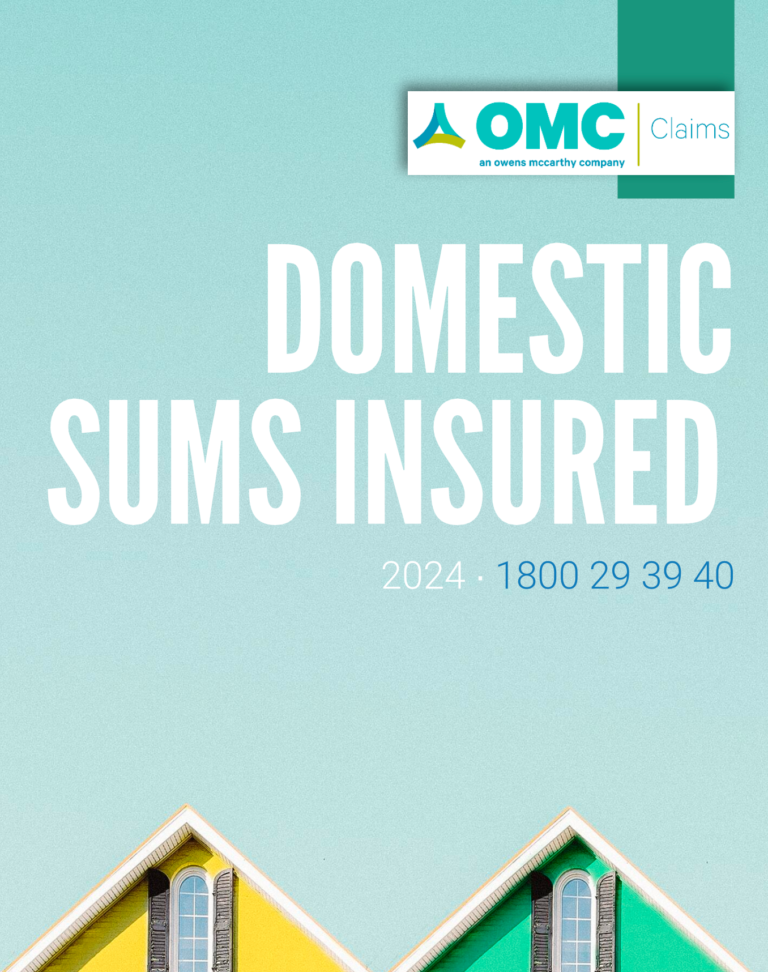Moving to a new country is exciting, but figuring out practicalities like car insurance can feel overwhelming. If you’re an expat, immigrant, or international driver living in Ireland, we’re here to help you understand how car insurance works in Ireland and how to get covered quickly and confidently.
Can Foreigners Get Car Insurance in Ireland?
Yes, you can. Whether you’re here to work, study, or start a new life, car insurance for foreigners is absolutely available. While the process may differ slightly depending on where you’re from and what kind of driving licence you hold, there are plenty of options, especially with expert help.
At McCarthy Insurance Group, we help expats, returning Irish citizens, and international drivers get on the road with the right cover at the right price. Keep reading to learn how car insurance works in Ireland, or reach out to get coverage.
Driving in Ireland with an International Licence
If you hold a valid driving licence from an EU or EEA country, you are allowed to drive in Ireland without needing to exchange your licence. These licences are fully recognised under Irish law.
Drivers from outside the EU or EEA can usually drive on their foreign licence for up to 12 months after becoming a resident. After that, you are required to exchange your licence for an Irish driving licence through the National Driver Licence Service (NDLS).
Tip: Although it’s possible to get car insurance in Ireland with an international licence, many insurers offer lower premiums and a wider range of policy options if you have an Irish licence. Exchanging your licence can make it easier to get insured and may save you money in the long run.
How to Get Car Insurance as a Foreign National in Ireland: Step-by-Step
If you’re moving to Ireland and planning to drive, getting car insurance can feel like a maze – especially if you’re new to the system or driving on a foreign licence. Here’s a practical step-by-step guide to getting insured, from the basics to being ready to drive legally.
1. Check Licence Eligibility
The type of driving licence you hold affects how easily you can get insured in Ireland.
- EU/EEA licences are fully valid in Ireland and do not need to be exchanged right away.
- Non-EU licences are valid for one year after becoming a resident. After that, you must exchange your licence through the National Driver Licence Service (NDLS).
2. Gather the Required Documents
Before applying for insurance, collect all the documents you’ll need. These typically include:
- A valid driving licence (translated if not in English)
- Proof of address, like a utility bill or bank statement dated within the last 6 months
- Vehicle details, including registration certificate, make, model, and year
- A No-Claims Bonus, ideally translated and officially documented if earned abroad
- Any previous driving or insurance history
Having these documents ready will make it much easier to get quotes and complete your application.
3. Get Your Driver Number
The driver number is a unique ID found in section 4(d) of an Irish driving licence. From March 2025, all drivers on a policy – including named drivers – will need to supply this number when applying for or renewing car insurance. If you haven’t exchanged your foreign licence yet, you’ll need to do so in order to get this number.
4. Get a Vehicle or Be Added to a Policy
You must either own a registered car in Ireland or be added as a named driver on someone else’s insurance policy.
If buying a car, make sure it’s roadworthy and has passed its NCT (National Car Test) if applicable. If you’re not ready to buy yet, being added as a named driver on a friend or family member’s policy is a good way to start gaining Irish driving experience.
5. Ask if Your Foreign Driving Experience Will Be Accepted
Many insurers in Ireland will consider your driving history from abroad, including any no-claims bonus you’ve built up. This can make a significant difference to the price you’re quoted, so it’s worth asking early.
If you’ve driven safely for several years in your home country, request official proof of your no-claims bonus or driving record from your previous insurer. Some companies may only accept this if it’s translated into English or meets specific requirements, so double-check what format they need.
Providing this documentation early in the process can help speed things up and potentially lower your premium. Don’t assume it won’t count; many insurers are open to recognising international experience, especially if it’s from countries with similar road safety standards.
6. Choose the Right Cover Type
There are two main types of car insurance coverage in Ireland:
- Third Party, Fire & Theft: Includes everything in third party cover, plus protection if your car is stolen or damaged by fire.
- Comprehensive: It covers all of the above and protects your own vehicle in the event of an accident, even if it’s your fault.
7. Consider Optional Add-Ons
Once you’ve selected a basic car insurance policy, it’s worth reviewing the optional extras that can provide additional peace of mind, especially if you’re new to driving in Ireland.
Common add-ons include:
- Breakdown assistance: Helps if your car won’t start or breaks down on the road. This is especially useful if you’re unfamiliar with local mechanics or recovery services.
- Windscreen cover: Covers the cost of repairing or replacing a damaged windscreen, which is a common issue on Irish roads due to gravel or debris.
- No-claims bonus protection: Lets you keep your discount even if you make a claim, helping you save over time.
- Legal expenses cover: Helps with legal costs if you’re involved in a dispute after an accident.
- Driving other cars: Allows you to drive someone else’s car with third-party cover, which can be handy if you’re borrowing a vehicle while settling in.
As a foreign national, having some of these extras can be especially reassuring. You may not yet have a strong support network in Ireland, and things like a breakdown or legal issue could feel more stressful than they might back home. Optional add-ons give you a safety net and can help avoid unexpected costs while you’re still finding your footing.
Take a moment to think about your daily driving habits, your location, and how confident you feel navigating Irish roads. Extras that might seem minor could make a big difference if something goes wrong.
8. Pay for Your Policy
Once you’ve chosen the right policy, the next step is payment. Most insurers allow you to pay the full amount upfront or in monthly instalments. Paying monthly can be convenient, especially when you’re settling into life in Ireland, though it may come with a small additional fee.
Insurance costs in Ireland vary depending on a few key factors, such as your age, driving history, where you live, the type of vehicle you drive, and how you plan to use it. If you’ve brought over proof of a no-claims bonus or previous insurance from abroad, this can help reduce your premium, so it’s worth submitting it early in the process.
For expats, getting insured can be straightforward, especially if you’ve already converted your licence or have international driving experience. Some insurers specialise in helping people new to the country, and working with a broker can be especially helpful for finding the right fit.
9. Display Your Insurance Disc
After payment, your insurer will issue two important documents: an insurance certificate and an insurance disc. These serve as official proof that your vehicle is covered and legally allowed on Irish roads.
The insurance disc must be displayed on the inside of your front windscreen, typically in the lower left-hand corner (as seen from the driver’s seat). This is so it’s clearly visible to both the Gardaí (Irish police) and traffic wardens, who may inspect it during routine stops or if your vehicle is parked in public.
The disc includes key details such as your policy number, the insured vehicle’s registration number, and the policy’s start and end dates. It’s an easy way for authorities to confirm at a glance that you’re insured.
Your insurance certificate should be kept in the car, ideally in the glovebox, or somewhere you can access quickly if stopped while driving. This document contains fuller details of your coverage and is your official record of the insurance agreement. You may need to present it in the event of a traffic stop, accident, or when renewing your motor tax.
Having both documents ready and correctly displayed shows you’re compliant with Irish law and gives peace of mind when driving. It’s a small but essential step in getting set up on the road as a new resident.
10. Final Checks
Before you hit the road, double-check the following:
- The policy start date is correct
- You have saved or printed your policy documents
- All named drivers are correctly listed
- The cover accurately reflects how you use the car (e.g. commuting, business use)
Taking the time to go through each of these steps will help ensure you’re fully insured, legally compliant, and protected on Irish roads.
Car Insurance for Foreign Nationals with McCarthy
Whether you’ve just arrived from the US, Brazil, India or elsewhere, or you’re moving back to Ireland after years abroad, we understand that navigating car insurance in a new country can feel overwhelming. At McCarthy Insurance Group, we’re not just here to sell a policy – we’re here to help you get on the road safely, so you can fully enjoy everything Ireland has to offer. With our experience in providing car insurance for foreign and returning nationals without a recent Irish driving history, we’ll guide you through the process and ensure you have the right coverage.
Get in touch today, and let’s make sure you’re covered – so you can drive with confidence and start your life in Ireland without a hitch!
FAQs: Car Insurance for Foreign Nationals in Ireland
Can I get car insurance in Ireland if I’m a foreign national?
Yes, foreign nationals can get car insurance in Ireland. The process depends on your driving licence, but with the correct documents, you can get covered.
Do I need to exchange my foreign licence to drive in Ireland?
If you’re from the EU or EEA, you don’t need to exchange your licence. Non-EU licence holders can drive for up to 12 months before needing to exchange it for an Irish licence.
What documents do I need to get car insurance in Ireland?
You’ll need a valid driving licence, proof of identity (passport), PPS number, proof of address, and vehicle details. Having these ready speeds up the process.
Can I use my no-claims bonus from my home country?
Yes, many insurers accept no-claims bonuses from abroad. Make sure your previous insurer provides proof in English if required.
What types of car insurance are available in Ireland?
In Ireland, you can choose from three types of insurance: Third Party (minimum cover), Third Party, Fire & Theft (includes fire/theft protection), and Comprehensive (full cover).
How can I save money on car insurance as an expat?
To save money, exchange your foreign licence for an Irish one, provide a no-claims bonus from abroad, and shop around for the best rates.
How do I legally prove my car insurance in Ireland?
You’ll need to display your insurance disc on the windscreen and keep the certificate in your car as proof of coverage.






